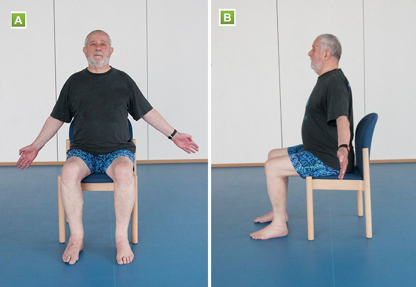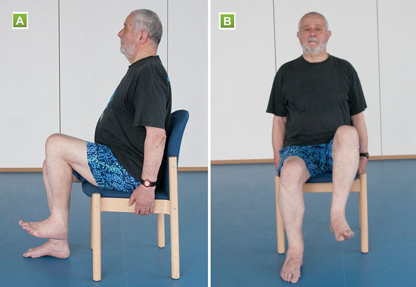Support to help eat, heat and keep well this winter.

Winter can be tough – it’s cold, dark, and the shorter days make it a bit trickier to stay connected with friends. Plus, the weather and health changes can add to the challenge.
This resource page contains all the information you can use or share to help eat, heat and keep well this winter.




Simple, cost-effective ideas for the whole family.
The Eatwell Guide shows how much of what we eat overall should come from each food group to achieve a healthy, balanced diet.
Dehydration is associated with poor health outcomes such as increased hospitalisation. Even mild dehydration adversely affects mental performance and tiredness.
Healthy Start is an NHS scheme that helps women who are pregnant or have young children and are receiving benefits, buy foods such as milk or fruit.
People are also entitled to free vitamins for both mother and child up to 4 years. These vitamins are tailored to mother and child’s nutritional requirements and are fundamental to healthy growth and development.

Hubs are warm, safe places where residents can expect a friendly and inclusive welcome. People can come along on their own, or with a friend, and talk to others over a hot drink.
The Conversation Café is a welcoming and safe drop-in session for Harrow residents to meet face-to-face with staff from the Council and community partners.
See the Harrow Council website for the times.
For more information, please email conversation.cafe@harrow.gov.uk.
Home fires occur more in the winter than in any other season.
Here’s a few fire safety tips:
London Fire Brigade have a new tool allows you to carry out a thorough check of your home in only a few minutes.
Benefits entitlement: Check entitlement to welfare benefits including Universal Credit, Housing Benefit and Council Tax Support: Benefit calculator (entitledto.co.uk)
Housing Benefit and Council Tax Support: how to claim and more information Benefits – Harrow Council
Universal Credit: Apply for Universal Credit – GOV.UK (www.gov.uk) Helpline Telephone: 0800 328 5644 Textphone: 0800 328 1344
Universal Credit Migration Advice: Move to Universal Credit – Move to Universal Credit
Citizens Advice Harrow: Contact us about applying for Universal Credit – Citizens Advice
Pension Credit: Pension Credit gives you extra money to help with your living costs if you’re over State Pension age and on a low income. Pension Credit can also help with housing costs such as ground rent or service charges.
Harrow Jobcentre:
Pension Credit: – how to claim Pension Credit: Overview – GOV.UK (www.gov.uk)
Other Government schemes:
Cost of Living GLA Resources: Help with the cost of living | London City Hall
SHINE: fuel poverty referral network and free energy advice service for Londoners.
Household Support Fund: what support is available and how to claim.
Support with rent arrears: If you have trouble paying your rent or mortgage, you can contact Harrow Council housing advice team.
Turn2Us: Check your benefit entitlement, search for grants, support with energy bills, and other financial advice and support.
Debt Advice: details of organisations that offer debt advice.
Help Harrow: a local food, support and advice service
Anyone can refer a rough sleeper via Streetlink ( https://www.streetlink.london/Streetlink_London_HomePage)
or via the Harrow Council Rough Sleeping Service: outreach.team@harrow.gov.uk (Rough Sleeper Outreach Referral webform: https://www.harrow.gov.uk/wf_roughsleep
Some statutory agencies have a Duty to Refer under the Homelessness Reduction Act, requiring them to refer people who are homeless/at risk of homelessness, so they could use this:
dutytorefer@harrow.gov.uk (Duty to Refer webform: http://www.harrow.gov.uk/dutytorefer)
If someone is at risk of homelessness the earlier they contact the team the better change there is to prevent their homelessness.
Housing Advice Team
The new Harrow Energy Advice and Support with the Cost-of-Living project is delivered by Groundwork.
To register interest as a household, call 0300 365 3005, or fill in an online referral form.
Condensation, damp and mould can have a serious effect on people’s health, especially if they have respiratory illnesses, allergies and asthma.
Damp can be caused by condensation (from cooking, bathing, drying wet clothes indoors) or by issues such as leaks or blocked gutters.
Damp and mould should be reported to the landlord or accommodation provider (private, housing association or council).
If the landlord does not address the issue, it should be reported to Environmental Health: https://www.harrow.gov.uk/housing-property/report-issue-privately-rented-accommodation
Council tenants: Online: https://www.harrow.gov.uk/housing-property/request-repair-council-home Telephone: Access Harrow 020 8901 2630
Emergency and Temporary Accommodation: Report to the accommodation provider, and escalate if needed by emailing emergency.accommodation@harrow.gov.uk or help2letrepairs@harrow.gov.uk
Private Rented Sector Tenants: Report to the private landlord. If they do not address the issue contact Environmental Health: https://www.harrow.gov.uk/housing-property/report-issue-privately-rented-accommodation
Housing Association Tenants: Report to the landlord’s repairs service. If they do not act make a complaint, contact the Independent Housing Ombudsman and/or Environmental Health.
Owner-occupiers: Responsible for addressing damp and mould in their own home.

A minor health concern? Pop into your local pharmacist, they can advise and refer if needed.
When to use 111: NHS 111 can help if you have an urgent medical problem and you’re not sure what to do.
When to use 999: Call 999 in a medical or mental health emergency, when someone is seriously ill / injured or life is at risk.
Urgent & Emergency Care Service
You can call the numbers below in cases of a genuine emergency and when there is an immediate threat to health or safety:
Mental Health Single Point of Access: Open all day, all year for support in a mental health crisis. 0800 0234 650 or
cnw-tr.spa@nhs.net
Find a pharmacy – NHS (www.nhs.uk)
How to register with a GP surgery: Anyone in England can register with a GP surgery. It’s free to register. You do not need proof of address or immigration status, ID or an NHS number.
If you can, find out if there is anyone who is providing unpaid care and support to a vulnerable person (this can include neighbours and friends) and be sure to check if there are any children who are also providing unpaid
care and support .
There’s a Conversation Café held every Tuesday at St Peters church Sumner road, West Harrow HA1 4BX 1pm – 3pm with free refreshments and direct engagement with Social Care staff and community groups.
Carer Lead: carers@harrow.gov.uk | Carer Webpage
Harrow Carers provides a comprehensive package of services for carers and is the focal point for carers in Harrow to obtain information, support and advice.
Domestic abuse is sometimes also referred to as domestic violence and can be defined as:
‘An incident or a pattern of incidents of controlling, coercive, threatening behaviour, violence or abuse. It concerns people aged 16 or over who are or have been intimate partners or family members and it can happen regardless
of your gender or sexuality’.
Domestic abuse can include, but is not limited to, the following types of abuse: psychological, emotional, physical, sexual and financial. It also includes what is known as ‘honour’ based violence, female genital mutilation
(FGM) and forced marriage
Be active: Swap your inactive pursuits with active ones. Go for a walk. Step outside. Cycle. Play a game. Garden. Dance. Walk or cycle when making short journeys. Being active makes you feel good. Most importantly, discover a physical activity you enjoy, and that suits your level of mobility and fitness.
Check Out: Harrow Health Walks
Take notice: Be curious. Catch sight of the beautiful. Remark on the unusual. Notice the changing seasons. Savour the moment, whether you are walking to work, eating lunch or talking to friends. Be aware of the world around you and what you are feeling. Reflecting on your experiences will help you appreciate what matters to you.
Connect with the people around you: With family, friends, colleagues and neighbours. At home, work, school or in your local community. Think of these as the cornerstones of your life and invest time in developing them. Building these connections will support and enrich you every day.
Keep learning: Try something new. Rediscover an old interest. Sign up for that course. Take on a different responsibility at work. Fix a bike. Learn to play an instrument or how to cook your favourite food. Set a challenge you will enjoy achieving. Learning new things will make you more confident and fun.
Check Out: Duolingo
Give: Do something nice for a friend, or a stranger. Thank someone. Smile. Volunteer your time. Join a community group. Look out, as well as in. Seeing yourself, and your happiness, linked to the wider community can be incredibly rewarding and creates connections with the people around you.
Harrow Talking Therapies: Provide a range of Talking Therapies in Harrow for people who feel anxious and worried or down and depressed.
If you prefer, you can also ask your GP or any other health professional to refer you. We provide our services jointly with our partner organisation, Mind in Harrow.
Harrow Cove mental health service for Harrow Residents
Heads Up (Mental Health Partnership): Partnership of 5 local charities offering specialist mental health services to young people aged 11-25.
Need To Talk Harrow: based low cost qualified counselling service.
The Resourceful Women’s Network: Free or low cost counselling service (from £2 an hour dependent on income).
Whatever you’re going through, a Samaritan will face it with you.
116 123 free from any phone
0330 094 5717 local call charges apply
44 Station Road, Harrow, HA1 2SQ
Gentle sitting exercises will help improve your mobility and prevent falls.
Strength and flexibility exercises to help improve your fitness and wellbeing.
Lots of ideas:
https://www.nhs.uk/live-well/exercise/strength-and-flexibility-exercises/

This stretch is good for posture.
A. Sit upright and away from the back of the chair. Pull your shoulders back and down. Extend your arms out to the side.
B. Gently push your chest forward and up until you feel a stretch across your chest.
Hold for 5 to 10 seconds and repeat 5 times.

This exercise will strengthen hips and thighs, and improve flexibility.
A. Sit upright and do not lean on the back of the chair. Hold on to the sides of the chair.
B. Lift your left leg with your knee bent as far as is comfortable. Place your foot down with control.
C. Repeat with the opposite leg.
Do 5 lifts with each leg.
The Harrow Council Home Improvement Agency can provide grants and services to support you to make home adaptions and improvements.
The services include:
Access Harrow social services team
https://www.harrow.gov.uk/housing-property/home-adaptions-grants-support-disabled-senior-people
The NHS have a guide which can help you understand the vaccines offered in the UK and when to have them.
It also explains how they work and why they’re safe and important.
There’s separate information travel vaccinations.
This page lists the most up to date locations for vaccinations in NW London listed by borough. This includes main vaccination sites, pharmacy sites, pop up locations and the vaccination bus. Each tab below contains a map of
that borough with the vaccination sites marked on it.
This guide can help you understand the vaccines offered in the UK and when to have them. It also explains how they work and why they’re safe and important. There’s separate information travel vaccinations.
Vaccine Misinformation
There is misleading information about vaccines circulating online. When making the decision to receive a vaccine or to have your child vaccinated, it’s important to know that vaccines:
Vaccines do: